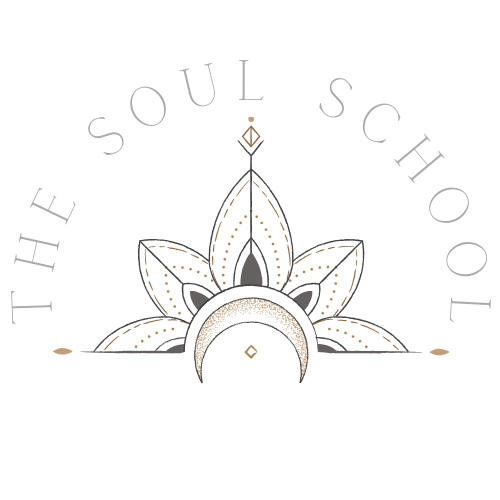The Choice is Yours: Embracing Growth at Every Turn
In every moment of our lives, we are presented with choices. These choices range from the mundane to the profoundly significant, and each one carries the potential to shape our lives and the lives of those around us. But when it comes to decision-making, there is often a tension between making a choice that feels right versus making the right choice. Understanding this distinction and the forces that drive our choices can profoundly impact our personal growth and self-awareness.
The Ego and the Soul in Decision-Making
Our decisions are frequently influenced by two primary forces: the ego and the soul. The ego is our self-constructed identity, formed from personal experiences, social conditioning, and the perceptions we hold about ourselves and the world. It often pushes us towards decisions that seek approval, enhance our social standing, or protect us from perceived threats. The choices made from the ego might feel right in the moment because they align with our fears, desires, and learned behaviors.
In contrast, the soul represents our deeper, intrinsic self—untouched by societal norms and personal biases. Choices made from the soul perspective are typically aligned with our truest desires and our overarching life purposes. These decisions, although not always comfortable or easy, have the potential to fulfill us in ways that ego-driven choices cannot.
Making a Choice Right vs. Making the Right Choice
"Making a choice right" involves choosing from a place of authenticity and then fully embracing the consequences of that choice. It means committing to the path you have chosen without regret and using it as an opportunity for personal growth, regardless of the outcome. This approach to decision-making is proactive and empowering because it acknowledges that every choice we make is an opportunity to learn and evolve.
On the other hand, "making the right choice" often implies a careful weighing of pros and cons, seeking to predict and control outcomes to ensure the best possible result. This method can be beneficial and lead to success, but it also risks paralyzing us with fear of making the wrong decision or constantly searching for a perfection that doesn't exist.
The Role of Perception and Past Experiences
Our choices are significantly influenced by how we perceive the world and ourselves. These perceptions are shaped by our past experiences, the lessons we’ve learned, and the interpretations we’ve made about life’s events. When we choose from a place of old patterns and unexamined beliefs, we are likely to repeat the same cycles and face similar challenges repeatedly. However, by recognizing these patterns, we can start to make decisions that challenge them, paving the way for new growth and better outcomes.
Growth Through Every Decision
Regardless of the origin of our decisions—be it the ego or the soul—each choice presents us with something to work with and grow from. The journey of personal development involves becoming conscious of the forces driving our choices and gradually learning to align more with our soul's voice. This alignment doesn’t mean that every decision will be perfect, but it ensures that our choices resonate more deeply with our true selves, leading to greater fulfillment and authenticity in our lives.
Every decision we make is a step on the path of learning. Whether we find ourselves choosing subconsciously from the ego or consciously from our soul, the ultimate goal remains the same: to grow, to learn, and to evolve into the fullest expression of who we truly are.
Beyond Indifference
In my reflections, I've often grappled with the common response to life's complexity: "It is what it is." This phrase, though sometimes practical in its acceptance of reality, often strikes me as a symbol of indifference. It seems to suggest a passive resignation to circumstances, a surrender of agency, and an acceptance of the status quo. However, from my perspective, this kind of acceptance can feel hollow, especially when it's used to dismiss deeper exploration or emotional acknowledgment of challenging situations.
Instead, I find solace and strength in the belief that "it is what we make of it." This perspective empowers us to take action and imbue our experiences with personal meaning and intent. It's an affirmation that, while we may not control every aspect of our lives, we always have the choice to engage creatively and constructively with our circumstances.
Nevertheless, the journey to this realization is not without its challenges. When we're caught in the throes of drama, ruminating on past regrets or feeling victimized, being told to see things as "what we make of it" can indeed provoke what feels like an egoic tantrum. It's a natural defense mechanism, an eruption of the pent-up frustration and helplessness that come from feeling misunderstood or minimized. Recognizing this, it becomes essential to approach such situations with patience and a readiness to gently guide our egos back towards a more centered and constructive mindset.
The Uncomfortable Truth of Other’s Right to Choose
Our ego really dislikes not being in control of those around us. But have you ever had to live out what you want by coercively manipulating someone into thinking your way is right only for them to ultimately return to their truth and live it out in the long run? That’s way more painful than just allowing them the freedom of being in charge of where their life takes them. No matter the choice, we will go back to our truth. By acknowledging and respecting others' rights to make choices that resonate with them—even when they diverge from our own—we cultivate a more empathetic and understanding world and way less pain for both parties in the long run. True Love is freedom.
This recognition does not mean we must agree with every choice or even support it, but rather that we acknowledge the fundamental human right to choose. Such a stance encourages dialogue, fosters tolerance, and promotes a deeper understanding of the complex beings that we share our spaces with. When we embrace this perspective, we not only allow others the freedom to be true to themselves, but we also deepen our own practice of authenticity.
By holding this space for others, we are reminded of the beauty and strength found in diversity. It teaches us that life is not just about making the right choices according to some universal standard, but about making choices that are right for each individual based on their unique circumstances and beliefs.
So, as we navigate our personal journeys of growth and self-discovery, let's also champion the rights of others to chart their own courses. In doing so, we build a world where every choice, as unique as it may be, is respected as a vital part of the colorful spectrum of human experience.
Journal Prompt
Reflect on a recent situation where you found yourself saying or thinking, “It is what it is.” What emotions and thoughts were present during this moment? Were you resigning yourself to a particular outcome, and if so, why? Now, consider how adopting the perspective of “It is what we make of it” could transform your approach to similar situations in the future. Explore both the potential benefits and challenges of embracing this mindset more actively in your daily life.



